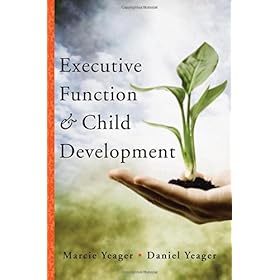Hi friends, We wanted to wish everyone a Happy Easter, and share a post from last year for those of you who are new to our blog. We hope it brings a smile to your face...
 By the time I came back downstairs the boys were all up,
faces covered in chocolate bunnies and sugar coated peeps and said they were
sorry. They even had my coffee ready for me. I smiled.
By the time I came back downstairs the boys were all up,
faces covered in chocolate bunnies and sugar coated peeps and said they were
sorry. They even had my coffee ready for me. I smiled.
by John
Easter started with a bang.
Easter started with a bang.
The boys were fighting. One of the boys could not find his Easter
basket, and the others had, so it was not so peaceful this Easter morning.
I had to step in and break up the fight and send the boys
with their baskets to their rooms… This was all before 6:30am mind you.
I gave my other foster child a hint as to where his basket
was, and when he found it, and headed happily back to his room, I went groggily
up for a shower.
 By the time I came back downstairs the boys were all up,
faces covered in chocolate bunnies and sugar coated peeps and said they were
sorry. They even had my coffee ready for me. I smiled.
By the time I came back downstairs the boys were all up,
faces covered in chocolate bunnies and sugar coated peeps and said they were
sorry. They even had my coffee ready for me. I smiled.
So, now I sat them down and asked them if they knew what had
happened last night and early this morning. Two of the boys had no idea, but the one foster boy who has
been with me 6 years told me the Easter story.
I knew he should know it. He has heard it 6 times now but
this was the first year he told it to me. I thought to myself, “ I LOVE IT!
THANK YOU GOD! He can learn!” (This
is especially significant as this foster son has significant memory and
learning difficulties stemming from fetal alcohol syndrome amongst other
things.)
Next, I asked the boys if they knew what the Easter basket
was meant to represent. The two boys who were being naughty at the
crack-of-dawn this morning didn’t know. The other boy, again, showed that he
could remember and recited all the symbolic meanings behind the Easter grass,
and the candy.
Then I asked if the boys knew the meaning of the basket
itself. None of them could remember so I reminded them.
I said, “It was empty last night, right? Nothing good was in
it and nothing was in it to give hope, just like the tomb that they had for
Jesus. The basket is like Jesus’ tomb.
It was empty but in the morning it was full of hope and love. You boys
were just like the apostles, running to the tomb to see if it was true, to see
if he had risen. You were looking for your baskets this morning the same way…
hoping that they were full of all the good things you were dreaming of and when
you found them you were so happy, you were laughing and loud, just like the
apostles were when they found out Jesus had risen. “
So, then we went outside to do something I started a few
years ago. I yelled as loud as I could three times “Jesus has risen, Jesus has
risen, Jesus has risen!” The boys all had big smiles on their faces. They began
yelling, “Happy Easter, Happy Easter!”
and our family grew a little closer because we shared our Easter
together with traditions both old and new.
Don’t be afraid to start new traditions with your foster
kids. You will create memories that they may cherish the rest of their lives.
Invite them to share traditions that bring back good memories for them as well,
from their former life, if they have them, or try to incorporate traditions
from their culture. Sharing traditions helps build bonds amongst all the family
members and creates new memories they can share and build upon.
Oh, and don’t worry, I did feed them an actual breakfast… on
top of the chocolate bunnies and peeps.
Image: Flickr: License






